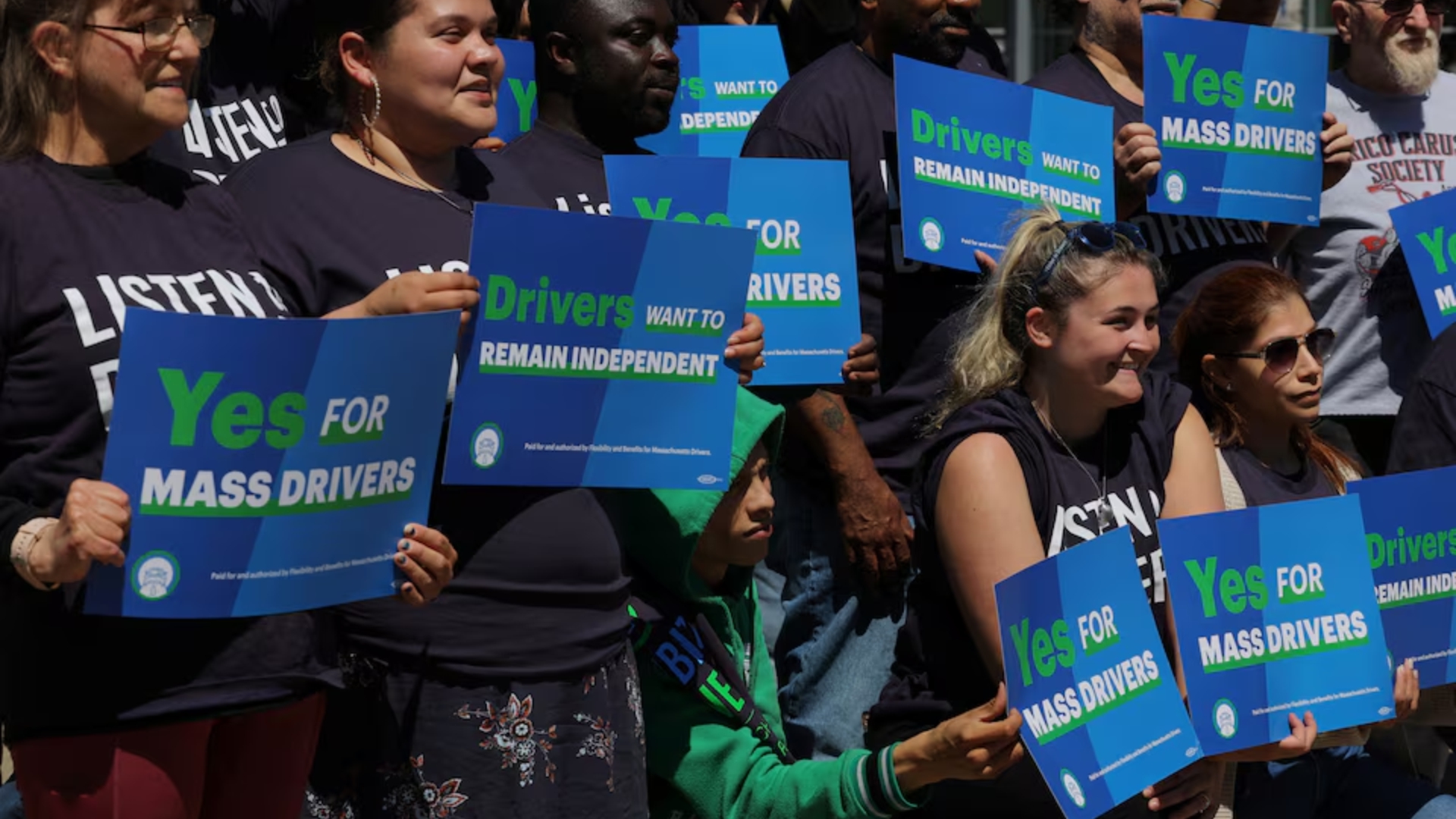BOSTON, (Reuters) – Massachusetts’ attorney general took Uber Technologies and Lyft to trial on Monday over allegations that the ride-share companies are misclassifying thousands of drivers in the state as independent contractors to avoid treating them as more costly employees.
The non-jury trial in Boston comes amid broader legal and political battles in the Democratic-led state and elsewhere nationally over the status of drivers for app-based companies whose services fuel the U.S. gig worker economy.
Massachusetts Attorney General Andrea Joy Campbell, a Democrat, is asking a judge to conclude that drivers for Uber and Lyft are employees under state law and therefore entitled to benefits such as a minimum wage, overtime and earned sick time.
Studies have shown that using contractors can cost companies as much as 30% less than employees.
Assistant Attorney General Douglas Martland in his opening statement said the companies’ algorithms, pricing policies and operating standards gave them a level of control over their drivers that belied any claim that they work independently.
He said the drivers are given little time to decide whether to accept a ride request from a user — just 15 seconds — and are never told up front how much riders will be paying them and the companies before letting them in their vehicles.
“What entrepreneur would do that?” Martland asked Suffolk County Superior Court Judge Peter Krupp, who will decide the case.
Lawyers for the companies argued the state misunderstood their businesses, saying the main employees on their payrolls were data scientists and others who fine-tune the apps they provide that connect independent drivers with potential riders.
“Lyft works for drivers, not the other way around,” said Felicia Ellsworth, Lyft’s lawyer.
Uber counsel Michele Maryott argued that drivers value the flexibility of being able to drive when they want, allowing them to tailor their work around children, other jobs and appointments and provide services only part time.
“The flexibility is critical for them,” she said. “These drivers don’t need to show up at all, much less at a specific time, like employees do.”
She and Ellsworth warned that a ruling requiring the companies to treat the state’s 55,000 Uber drivers and 35,000 Lyft drivers as employees could force them to cut or halt operations in Massachusetts.
The case went to trial a week after Massachusetts’ highest court heard arguments over whether to allow an industry-backed ballot measure to go before voters in November that defines the drivers as contractors but entitles them to some new benefits.
The court appeared open to allowing some version of that proposal to go on the ballot along with a rival, labor-backed ballot measure that seeks to allow the drivers to unionize.
The lawsuit at issue in Monday’s trial was filed in 2020 by Campbell’s predecessor, Maura Healey, now the state’s Democratic governor. Should the state prevail, it has said the companies could face large penalties for not properly classifying their drivers.
Should Uber and Lyft lose the trial but succeed at the ballot box, Campbell’s office has said the ballot measure would only govern the companies’ conduct moving forward and that they could face large penalties for past misclassification.
By not classifying their Massachusetts drivers as employees, Uber and Lyft avoided paying $266.4 million into workers’ compensation, unemployment insurance and paid family medical leave over 10 years, according to a report by the state auditor.
Reporting by Nate Raymond in Boston; Editing by Josie Kao, Alexia Garamfalvi and Bill Berkrot











